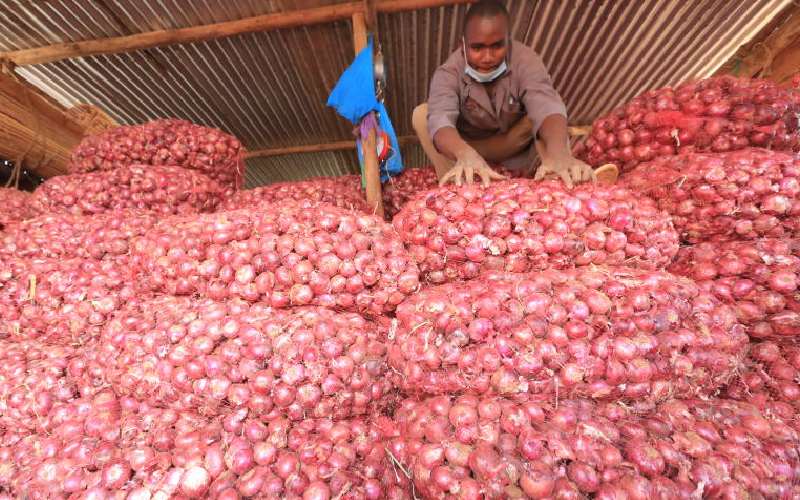×
The Standard e-Paper
Smart Minds Choose Us

Enock Magara sorts his red onions at his Daraja Mbili market in Kisii County on November 9, 2020.[Sammy Omingo,Standard]
In 2019, for instance, 96 per cent of onions imported to Kenya came from China